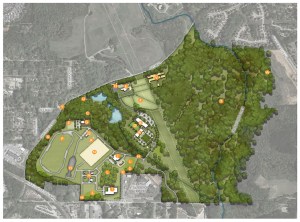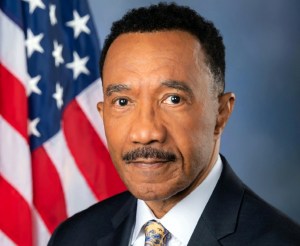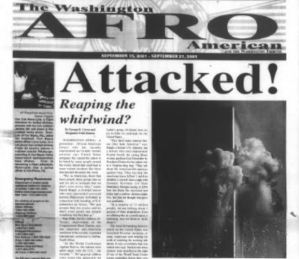By DaQuan Lawrence,
Special to the AFRO
Activists in the D.C., Maryland and Virginia (DMV) area are weighing in on the construction and use of a public safety training center near Atlanta.
Opponens of a massive police training center soon to open near Atlanta, Ga. staged a two-hour virtual roundtable to engage national attention on the impact of a facility known as “Cop City” at a time when tensions between community activists and law enforcement advocates are at an all-time high.
The virtual event “A Black Abolitionist View on Cop City” was live streamed by Black Power Media and featured political activist Dr. Angela Davis, Jasmine Burnett of Community Movement Builders and Mariah Parker, an artist, organizer and cultural worker.
The subject: the $90 million, 85-acre Atlanta Public Safety Training Center currently under construction in the South River Forest of DeKalb County, Ga., that will include an additional 265-acres of greenspace.
The project’s first phase of the Public SafetyTraining Center, sponsored by the Atlanta Police Foundation (APF), is scheduled to open in the fourth quarter of this year on land that was once the site of a prison.
In early June, Atlanta City Council members voted 11- 4 to fund the highly controversial facility after over 14 hours of deliberation among hundreds of protestors. Opponents of Cop City argue that the new center will enable the militarization of police within the state and country, increase police brutality and enable state sanctioned violence, such as police killings of Black and brown residents.
Atlanta residents protested at Atlanta City Hall against authorizing an additional $33.5 million in public funding for the training center, as the project has exceeded its initial budget due to public opposition, increased expenses and the loss of private funders.
Andre Dickens, mayor of Atlanta, recently announced that public safety in the greater Atlanta area is a primary concern, declaring that a public safety training center for first responders is deeply needed due to modern day dangers.
The group addressed the relationship between capitalism and policing, and offered community-driven solutions to policing in America.
Though police-citizen confrontations have dominated the news throughout recent years, regrettably, these events are no different to their predecessors. The U.S. has sat at the helm of issues of police brutality due to the nature of the criminal justice system.

“As abolitionists, we are people who have a particular vision of the world, where the point of the institutions that exist actually affirm Black life,” said M Adams of the Movement for Black Lives (M4BL).
“We have an analysis that tells us that policing, the U.S. Immigration and Customs Enforcement, immigration and detention services, prisons and jails are destructive things that tear down life and do the opposite of what they tell us that they do,” Adams said.
Adams orchestrated the panel to discuss the Public Safety Training Center, the approach of law enforcement, and how the two will benefit the nation’s marginalized communities.
“There is unchecked use of police narratives that try to tell us that the point of policing is to protect and serve the people,” said Adams.
According to the APF, the training facility will “set a national standard for community engagement, neighborhood sensitivity and devotion to the civil rights of all citizens by law enforcement.”
“We actually know that policing was created to protect the capitalist class and their property,” said Adams.
Burnett said that “COP City would essentially be a $90 million urban warfare training facility used to practice bomb detonations and high-speed chases.”
“They’re going to build a mock city of Atlanta to practice urban warfare techniques for police departments across the country and internationally,” she continued.
Atlanta Fire and Rescue Department Chief Rod Smith told the AFRO the policy goal of the project echoes his department’s publicized mission.
“Atlanta Fire and Rescue’s primary goal is to provide the best service we can to the citizens of Atlanta,” he said.
In addition to sharing temporary training spaces with other public safety agencies located up to 25-30 minutes away, the old facilities utilized by APD and AFRD, which have since been condemned, were two elementary schools built in the 1950s.
“With us having 1,284 employees and roughly 100 new recruits, we simply do not have adequate capacity or training facilities,” Smith said. “We want to set the tone for the nation as it relates to relations between police and fire departments.”
Opponens of the training facility were recently prevented from accessing the nearby public park for the first time in almost two years of opposition, as the public portion of the South River Forest was purportedly shut down for the public’s safety.
The park’s adjacent forest was the scene of the Jan. 18 death of activist Manuel Paez Terán, known locally as Tortuguita, who was killed when Georgia law enforcement officers fired at protesters.
“AFRD and APD have the largest departments [in the state], we train together frequently and provide training opportunities for police departments in the region,” said Smith.
Cop City opponents insist that the training center is an extension of a racist approach to public safety linked to the Jim Crow era.
“Many people think of the police as existing as long as human beings have populated this planet, but police forces only developed with capitalism. When we acknowledge that, then we can acknowledge that they can also go out of existence within capitalism,” Davis said.
Parker, a scholar, former Athens Clarke County, Ga. commissioner, and an organizer of Stop COP City, a campaign dedicated to preventing the center’s completion also weighed in on the issue.
“I think there’s an ahistorical narrative about the relationship between policing and capitalism,” said Parker. “The wealthy elites need an apparatus that is going to punish and disappear anyone who stands in the way of them being able to accumulate profits.”
She said that the idea of a centralized municipal police department first emerged in the U.S. in the 1830s.
“That’s why if you steal from a grocery store to feed your family because you’re not making a living wage, you can be locked up, disappeared and arrested. But a wealthy banker on Wall Street–who crashes the housing market and leads to the displacement and gentrification of working-class communities– faces no negative consequences.”
“I think there’s an ahistorical narrative about the relationship between policing and capitalism,” said Parker, who is a scholar, former Athens Clarke County District-2 Commissioner, and an organizer of Stop COP City, a campaign dedicated to preventing the center’s completion.
“The wealthy elites need an apparatus that is going to punish and disappear anyone who stands in the way of them being able to accumulate profits,” they continued. It was not until the 1830s that the idea of a centralized municipal police department first emerged in the U.S.
“We want the $33 million dollars that the city of Atlanta is donating to this project to go to the things that we know keep us safe,” Parker concluded.
Panelists also discussed the importance environmental and economic justice, and new ideas for the future. “Cop City sits at the intersection environment, abolitionist and economic issues. It’s a question about who controls our city,” said Burnett.
“We have to expand our imagination about what can be different in the society and really invest in that,” said Burnett.
The post Local activists hold forum, weigh in on Atlanta’s ‘Cop City’ appeared first on AFRO American Newspapers .











